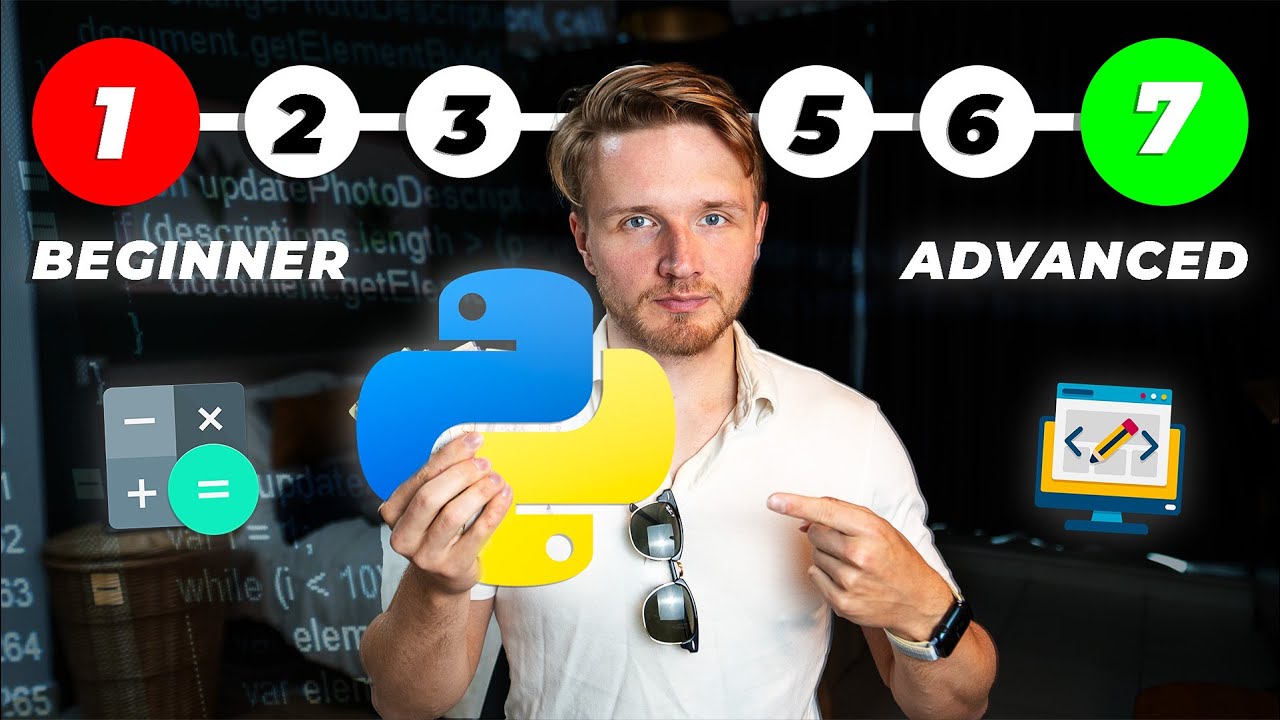The video presents a roadmap for learning Python through seven practical projects, ranging from a simple command-line calculator to a portfolio website, emphasizing hands-on application of programming concepts. It encourages viewers to master the basics before progressing through increasingly complex projects, ultimately building a solid foundation in Python and preparing them for further development opportunities.
In the video, the presenter outlines a comprehensive roadmap for learning Python through a series of seven projects, ranging from beginner to advanced levels. Unlike traditional tutorials that focus solely on teaching concepts, this approach emphasizes practical application by encouraging viewers to build projects that reinforce their understanding of Python. The goal is to help learners internalize the material, making it easier to remember and apply in real-world scenarios. The presenter also mentions that this roadmap can serve as a companion to their paid Python Developer Bootcamp, which offers a more structured learning experience.
Before diving into the projects, the video stresses the importance of mastering the absolute basics of Python, including variables, functions, loops, data types, and control flow. The presenter recommends starting with a foundational tutorial available on their channel for complete beginners. Once viewers are comfortable with these building blocks, they can begin working on the first project: a simple command-line calculator application. This project will help learners practice essential concepts such as functions, input/output, and error handling.
The second project involves creating a basic command-line to-do application, which expands on the skills learned in the first project. This application will allow users to add, view, and complete tasks using lists, loops, and conditional statements. The presenter encourages learners to consider data persistence by eventually integrating a database or file storage system to save tasks beyond the application’s runtime. The third project introduces a weather app that utilizes an API to fetch real-time weather data, teaching viewers about libraries, API requests, and JSON parsing.
As learners progress, the fourth project focuses on building a personal finance expense tracker that involves file handling and CSV operations. This project emphasizes data persistence, allowing users to track their expenses over time. The fifth project introduces object-oriented programming through an interactive quiz application, where learners will create classes and objects to manage quiz questions and scoring. The sixth project involves web scraping, teaching viewers how to extract data from websites using libraries like Beautiful Soup and Requests.
Finally, the seventh project culminates in building a portfolio website using Flask or Django, where learners can showcase their previous projects. This project requires knowledge of web development fundamentals, including front-end and back-end integration, as well as HTML, CSS, and JavaScript. By completing all seven projects, learners will have a solid foundation in Python and the skills necessary to pursue further development opportunities or job prospects in the field. The presenter encourages viewers to continue building and exploring more complex projects to enhance their programming skills.
